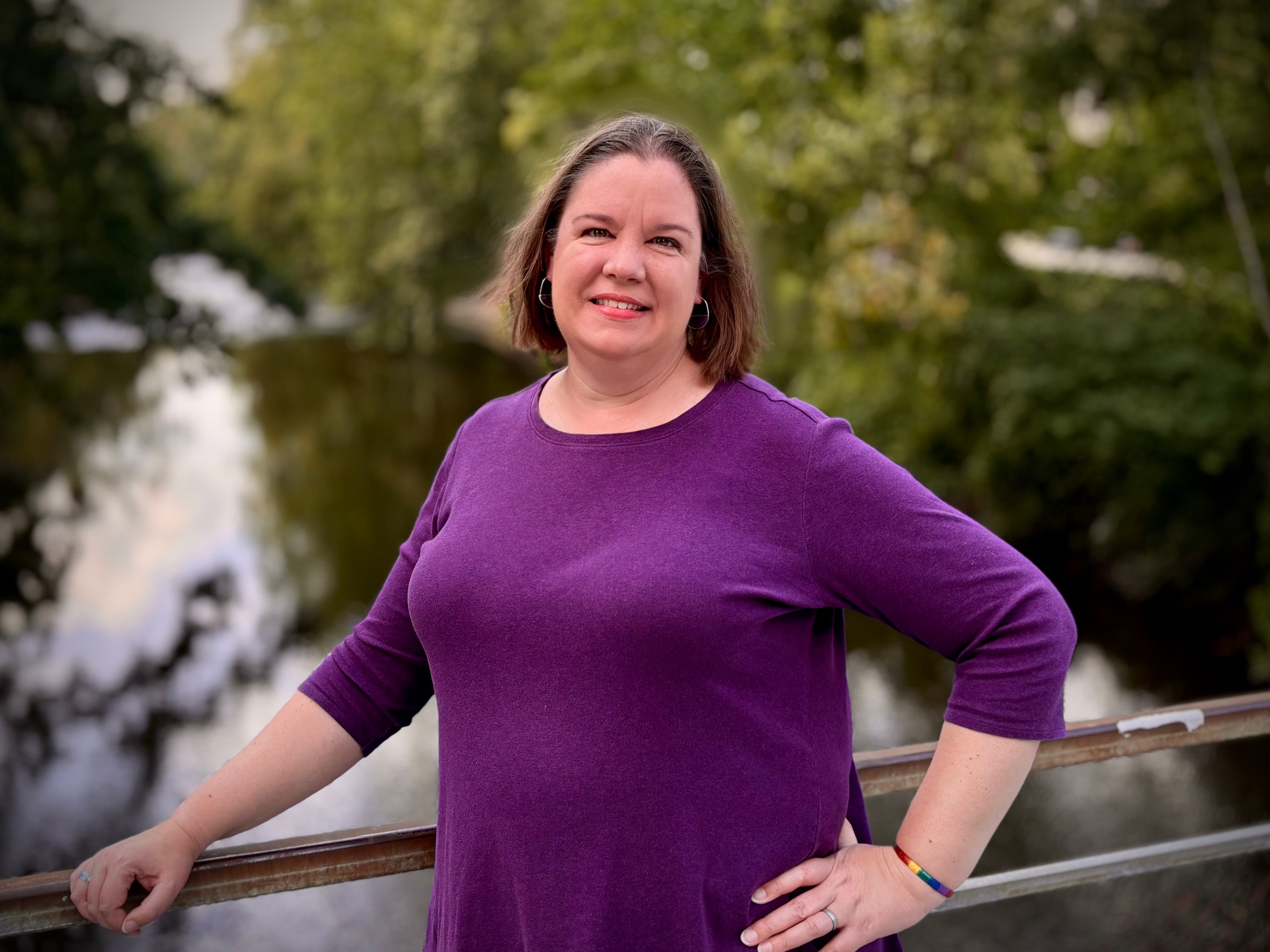Joy Campbell (she/her) is in her 23rd year at MSU. She currently serves as MSU’s Fulbright program advisor and oversees Peace Corps programming on campus. In her Fulbright role, she works with domestic students and faculty who hope to pursue Fulbright opportunities abroad. For the Peace Corps, Joy coordinates the Peace Corps Prep undergraduate certificate program and supervises the campus Peace Corps Recruitment Office.
Spring is my favorite time of the Fulbright year. That’s when we hear who has been offered a Fulbright award to go abroad for a year of teaching, research, or graduate study.
It’s not unusual for a year to pass between the first time I meet with a Spartan and when finalists for these prestigious awards are notified. The emails trickle in over a span of a few weeks, with subject lines that tend toward all-caps excitement, like “FULBRIGHT UPDATE!!!” or “OMG!” Sometimes the email is fairly coherent, albeit with lots of exclamation points: “I just saw the letter from Fulbright that I'm a finalist!!! I am so, so excited and cannot thank you enough for your help throughout this journey!” and sometimes they’re delightfully stream-of-consciousness:
JOY,
WE WON!!!!
WE WON!!
Thank you for all of your hard work! We won!
I am shaking right now!
I will write something more cohesive later!
Best,
[name]
There are just a handful of those emails each spring. In a banner year, there might be 10 or more, which puts MSU into the category of Top Producer of U.S. Fulbright Students, an honor we recently earned for the 2024-25 competition.
I might start with more than 200 potentially interested students in each cycle, which has enabled me to work with students from every walk of life. What ties these Spartans together is that every aspiring Fulbright applicant is curious about the world we share. Fulbrighters spend a year as cultural ambassadors, living and working in a new community, perhaps picking up a new language, making new friends, and building global connections in the pursuit of a more peaceful planet.
Some students will decide along the way that the timing isn’t right or the program isn’t a good fit, and that’s OK. In the last five cohorts, since I became the campus Fulbright Program Advisor, we have had anywhere from 23 to 40 applications ultimately submitted.
Last year’s applicant cohort of 38 Spartans, hoping for awards in the 2025-26 academic year, hailed from 12 different MSU colleges and applied to 19 different host countries. The group was made up of 81% undergraduates (most students apply senior fall or the fall after they graduate) and 19% graduate students. Almost 40% of our applicants were students of color, and 42% identify as part of the LGBTQ+ community. About 10% were transfer students, 29% were first generation college students, and one was a military veteran. I love that our potential Fulbrighters reflect our campus diversity and that I have an opportunity to work with students whose lived experiences are so varied. It is truly an honor to work with and learn from so many amazing Spartans every year.
The hard truth is that the majority of our applicants are not awarded Fulbrights; the national success rate hovers around 20%, with many of the most sought-after awards going to a significantly smaller percentage. But the time spent working on the application is never wasted. The process itself is a great professional development experience, with applicants learning about themselves, articulating their goals, reflecting on their hopes, and honing their writing skills.
Applicants who are not selected show amazing Spartan resilience, and I’m always just as proud of them as of our grantees, though the emails take a different tone. One student told me earlier this year, “Today I feel disappointed, but it was 100% worth the effort because I have a greater understanding of what truly excites me and I intend to shape my aspirations around that from now on,” and another, “Though I was (and still am lol) bummed about not being selected for the Fulbright I am still proud of my research proposal… I am committed to this journey and will continue to keep trying.”
A strong Fulbright application tells a story. The writer must convince their readers that they are the perfect person for their proposed project in the selected host country. I am privileged to work with so many Spartans, helping them tell their stories in a way that might just help them be the next awardee on our list of more than 230 Spartan students who have won Fulbrights since 1949. And if I’m lucky, maybe a few of them will send me an email that captures that giddy, elated, stream-of-consciousness moment when they realize they’ve done it.
